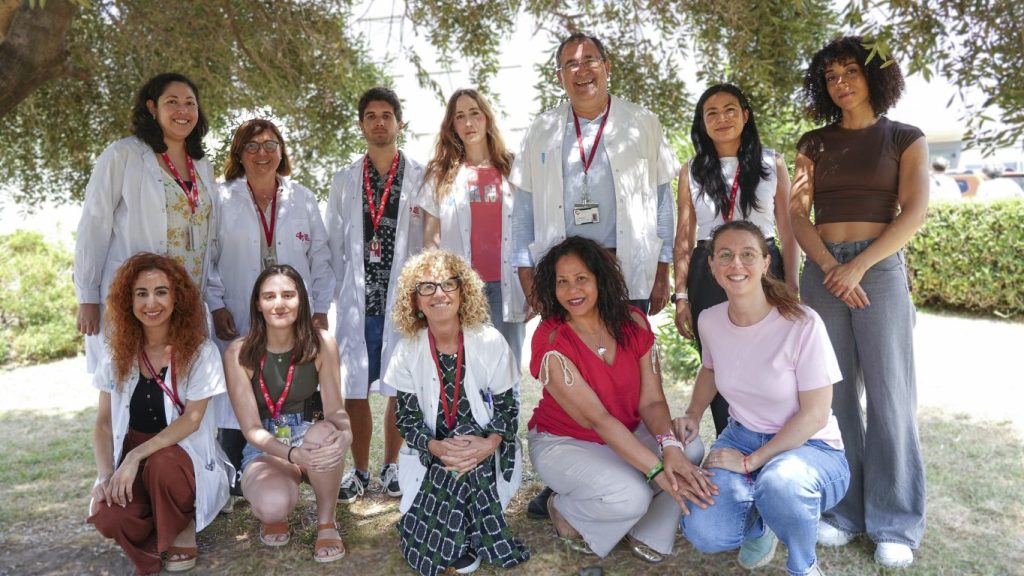The pressure to maintain a certain body image and the demands of some sports disciplines can affect the emotional well-being of people who practice sport. An international study led by the Bellvitge University Hospital and the Bellvitge Biomedical Research Institute (IDIBELL), published in the Journal of Eating Disorders, has analysed the impact of these factors on people with eating disorders (ED) who practice elite sports.
The research, coordinated by Dr. Fernando Fernández-Aranda, head of the ED Unit of the Bellvitge Clinical Psychology Service and co-leader of the research group in Psychoneurobiology of eating disorders and addictive behaviors at IDIBELL, has identified relevant differences according to gender. Women who have experienced an eating disorder have higher levels of anxiety, body dissatisfaction and suicidal ideation, while men show less concern about body image, which can make it difficult to detect the disorder.
“Sport can be protective for mental health, but it can also generate situations of vulnerability, especially when performance, weight, nutrition and body image are prioritized over well-being,” explains Dr. Fernández-Aranda. It is essential to implement preventive actions that consider the reality of athletes and accompany them during and after their professional stage,” he adds.
Sport, a risk or protection factor?
High-level sports can offer mental health benefits thanks to its structure, discipline, and medical follow-up. However, when factors such as obsession with weight, extreme demand, restrictive diet, or lack of support after finishing a sports career come into play, risky behaviours and psychological distress can appear.
This study highlights the need to adapt strategies for the prevention and early detection of eating disorders to the field of sport, with a gender-specific approach and considering the diversity of personal situations.
A reality made invisible in men
Although EDs are more commonly diagnosed in women, data indicate that they also affect male athletes. However, these cases often go unnoticed, as detection tools are not adapted to their specific manifestations. While women may express a desire to lose weight, men tend to focus on increasing muscle mass and improving athletic performance.
“It is necessary to review the screening tools to adapt them to the different forms that an ED can take depending on the gender, context and type of sport,” concludes Dr. Fernández-Aranda.
Bellvitge University Hospital is a reference centre in the treatment and IDIBELL in the research of eating disorders. The research team that participated in this study includes Magda Rosinska, Dorotya Soós, Laura Gálvez Solé, Roser Granero, Isabel Sánchez and Susana Jiménez-Murcia, from the Bellvitge Hospital, as well as Ana Ibáñez-Caparrós, from the Department of Psychiatry of the Germans Trias i Pujol University Hospital in Badalona, and collaborators from Germany and Hungary.
About Bellvitge University Hospital (HUB)
Bellvitge Hospital is a public, university, research and innovative hospital, which in 2022 celebrated its first 50 years of history. With 5,200 expert and committed professionals, it is the local hospital for the citizens of Hospitalet and El Prat de Llobregat, and a reference centre of maximum complexity for 2 million people in southern Catalonia. It is the Catalan hospital that performs the most complex surgery, especially oncological surgery, and the one that performs the most kidney and heart transplants in adults. All its projects are aimed at improving the experience of the people served and working in a network with primary care and the surrounding hospitals. Oriented towards personalised medicine, it has the best genetic diagnosis and imaging tools for cancer and rare diseases, which are complemented by the new High Precision Diagnostic Centre, which has the first PET/MRI in the Spanish healthcare network. It annually registers about 20,000 major surgery interventions, 37,000 hospital discharges, 485,000 outpatient visits and nearly 100,000 diagnostic tests.
About IDIBELL
The Bellvitge Biomedical Research Institute (IDIBELL) is a research centre created in 2004 specialising in cancer, neuroscience, translational medicine and regenerative medicine. It has a team of more than 1,500 professionals who, from the 73 research groups, generate more than 1,400 scientific articles per year. IDIBELL is owned by the Bellvitge University Hospital and the Viladecans Hospital of the Catalan Institute of Health, the Catalan Institute of Oncology, the University of Barcelona and the City Council of L’Hospitalet de Llobregat.
IDIBELL is a member of the Campus of International Excellence of the University of Barcelona HUBc and is part of the CERCA institution of the Generalitat de Catalunya. In 2009 it became one of the first five Spanish research centres accredited as a health research institute by the Carlos III Health Institute. In addition, it is part of the “HR Excellence in Research” program of the European Union and is a member of EATRIS and REGIC. Since 2018, IDIBELL has been an Accredited Centre of the AECC Scientific Foundation (FCAECC).

